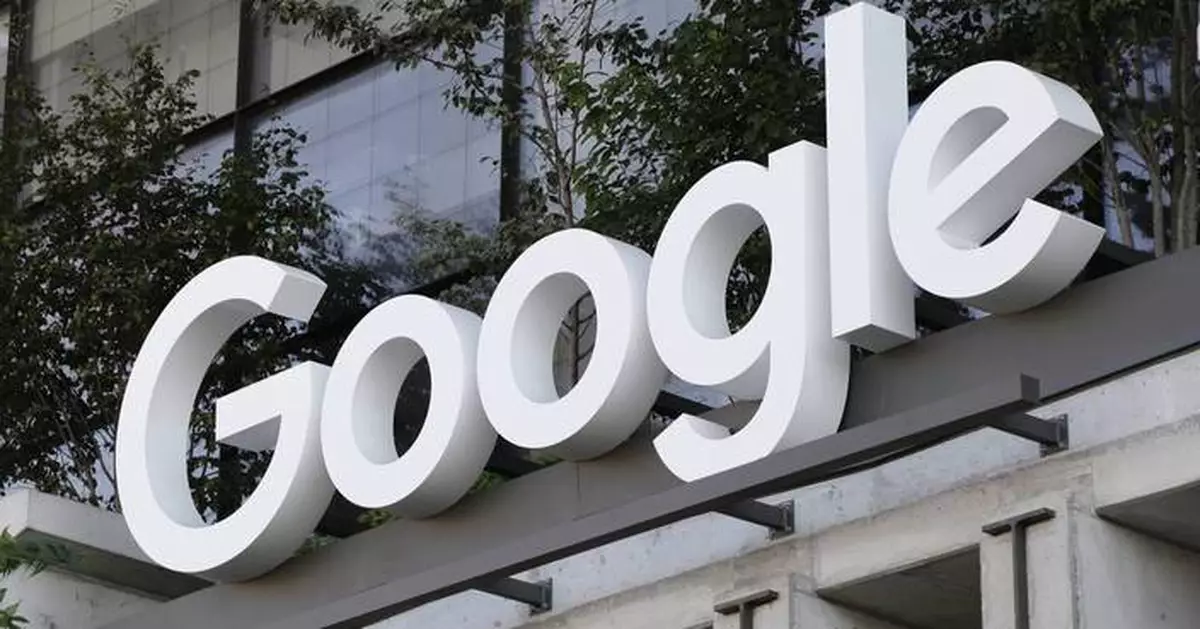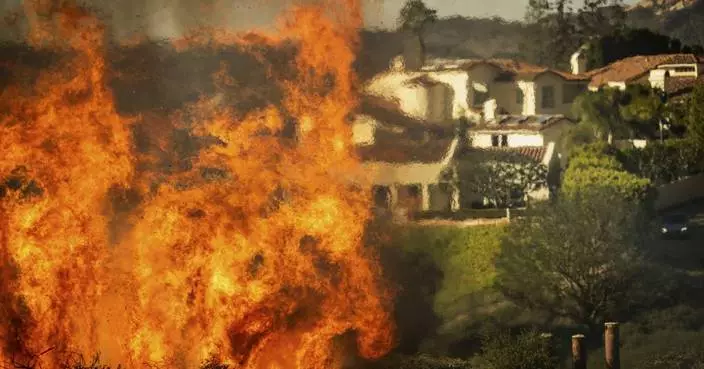ALEXANDRIA, Va. (AP) — Google, already facing a possible breakup of the company over its ubiquitous search engine, is fighting to beat back another attack by the U.S. Department of Justice alleging monopolistic conduct, this time over technology that puts online advertising in front of consumers.
The Justice Department and Google made closing arguments Monday in a trial alleging Google's advertising technology constitutes an illegal monopoly.
U.S. District Judge Leonie Brinkema in Alexandria, Virginia, will decide the case and is expected to issue a written ruling by the end of the year. If Brinkema finds Google has engaged in illegal, monopolistic conduct, she will then hold further hearings to explore what remedies should be imposed.
The Justice Department, along with a coalition of states, has already said it believes Google should be forced to sell off parts of its ad tech business, which generates tens of billions of dollars annually for the Mountain View, California-based company.
After roughly a month of trial testimony earlier this year, the arguments in the case remain the same.
During three hours of arguments Monday, Brinkema, who sometimes tips her hand during legal arguments, did little to indicate how she might rule. She did, though, question the applicability of a key antitrust case Google cites in its defense.
The Justice Department contends Google built and maintained a monopoly in “open-web display advertising,” essentially the rectangular ads that appear on the top and right-hand side of the page when one browses websites.
Google dominates all facets of the market. A technology called DoubleClick is used pervasively by news sites and other online publishers, while Google Ads maintains a cache of advertisers large and small looking to place their ads on the right webpage in front of the right consumer.
In between is another Google product, AdExchange, that conducts nearly instantaneous auctions matching advertisers to publishers.
In court papers, Justice Department lawyers say Google “is more concerned with acquiring and preserving its trifecta of monopolies than serving its own publisher and advertiser customers or winning on the merits.”
As a result, content providers and news organizations have never been able to generate the online revenue they should due to Google’s excessive fees for brokering transactions between advertisers and publishers, the government says.
Google argues the government's case improperly focuses on a narrow niche of online advertising. If one looks more broadly at online advertising to include social media, streaming TV services, and app-based advertising, Google says it controls as little as 10% of the market, a share that is dwindling as it faces increased and evolving competition.
Google alleges in court papers that the government’s lawsuit “boil(s) down to the persistent complaints of a handful of Google’s rivals and several mammoth publishers.”
Google also says it has invested billions in technology that facilitates the efficient match of advertisers to interested consumers and it should not be forced to share its technology and success with competitors.
“Requiring a company to do further engineering work to make its technology and customers accessible by all of its competitors on their preferred terms has never been compelled by U.S. antitrust law,” the company wrote.
Brinkema, during Monday's arguments, also sought clarity on Google’s market share, a number the two sides dispute, depending on how broadly the market is defined.
Historically, courts have been unwilling to declare an illegal monopoly in markets in which a company holds less than a 70% market share. Google says that when online display advertising is viewed as a whole, it holds only a 10% market share, and dwindling.
The Justice Department contends, though, that when focusing on open-web display advertising, Google controls 91% of the market for publisher ad servers and 87% of the market for advertiser ad networks.
Google says that the “open web display advertising” market is gerrymandered by the Justice Department to make Google look bad, and that nobody in the industry looks at that category of ads without considering the ability of advertisers to switch to other forms of advertising, like in mobile apps.
The Justice Department also contends that the public is harmed by the excessive rates Google charges to facilitate ad purchases, saying the company takes 36 cents on the dollar when it facilitates the transaction end to end.
Google says its “take rate” has dropped to 31% and continues to decrease, and it says that rate is lower than that of its competitors.
“When you have an integrated system, one of the benefits is lower prices," Google lawyer Karen Dunn said Monday.
The Virginia case is separate from an ongoing lawsuit brought against Google in the District of Columbia over its namesake search engine. In that case, the judge determined it constitutes an illegal monopoly but has not decided what remedy to impose.
The Justice Department said last week it will seek to force Google to sell its Chrome web browser, among a host of other penalties. Google has said the department's request is overkill and unhinged from legitimate regulation.
In Monday's arguments, Justice Department lawyer Aaron Teitelbaum cited the search engine case when he highlighted an email from a Google executive, David Rosenblatt, who said in a 2009 email that Google’s goal was to “do to display what Google did to search," which Teitelbaum said showed the company's intent to achieve market dominance.
“Google did not achieve its trifecta of monopolies by accident,” Teitelbaum said.
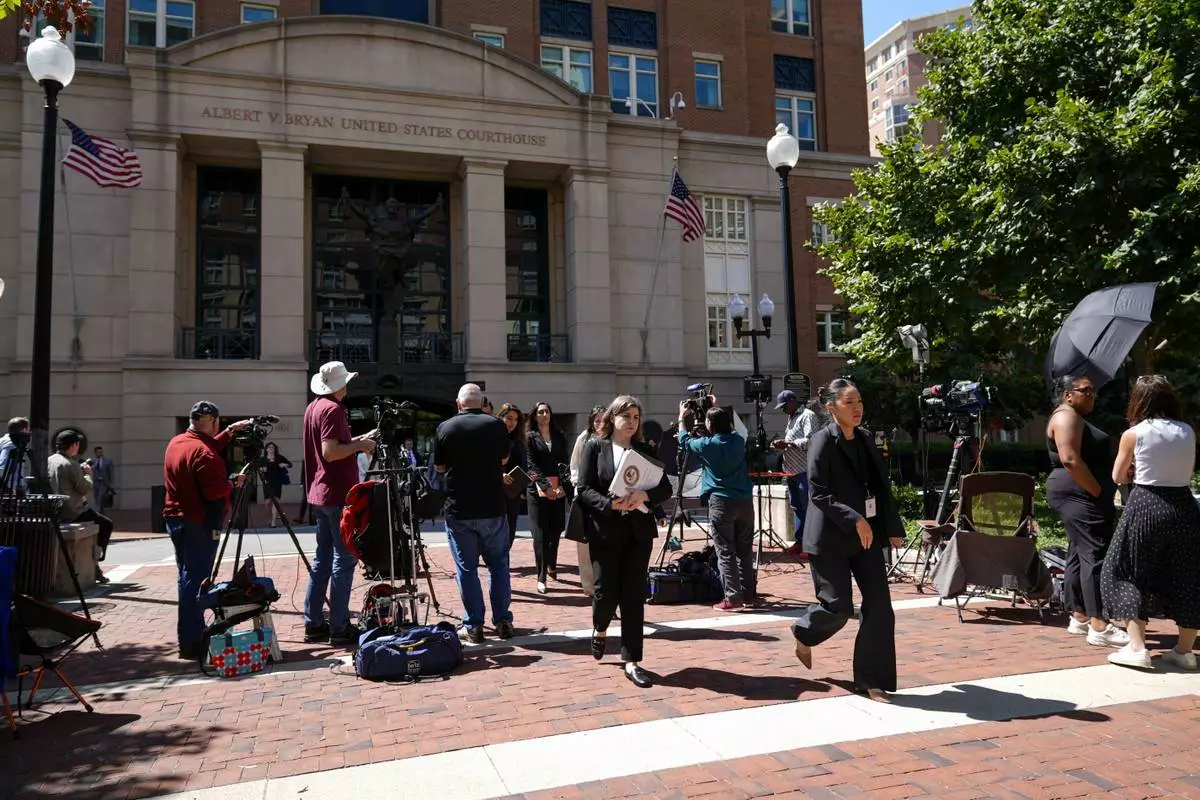
FILE - Lawyers and legal assistants leave the U.S. District Court for the Eastern District of Virginia for a lunch break in the Department of Justice's antitrust trial against tech giant Google, Sept. 9, 2024, in Alexandria, Va. (AP Photo/Stephanie Scarbrough, File)
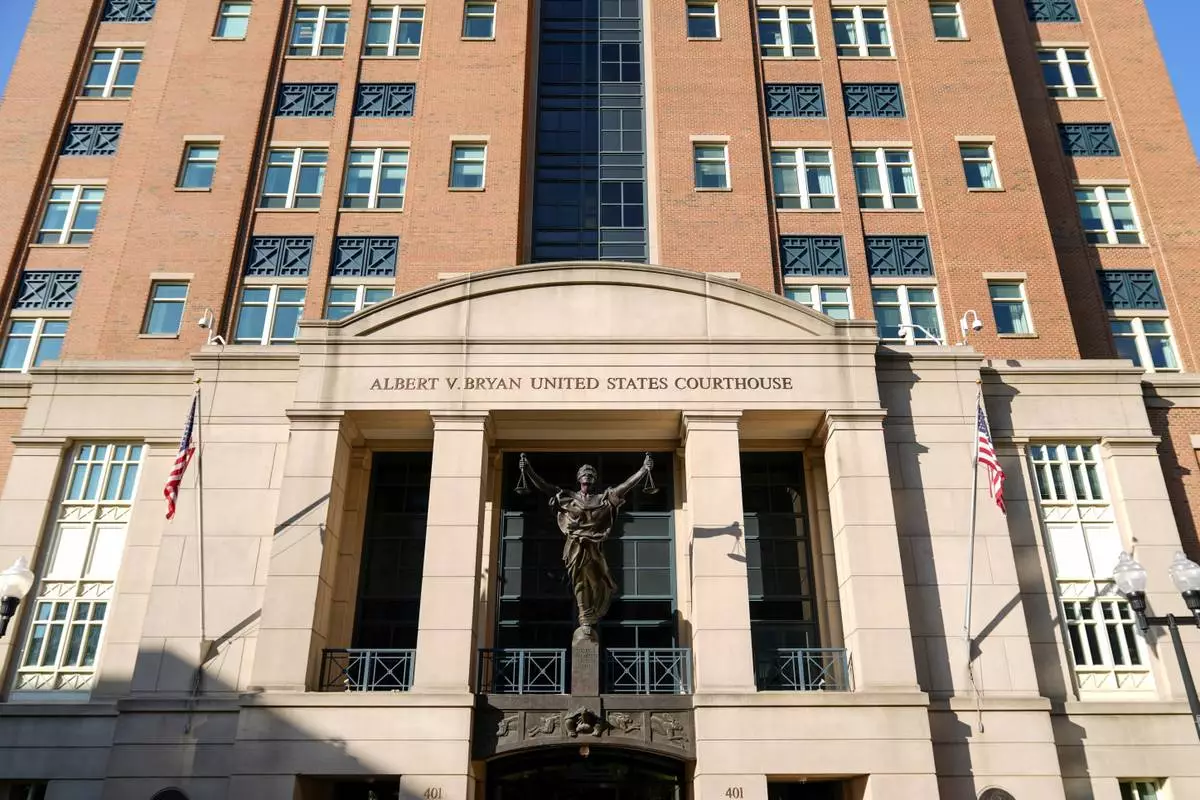
FILE - The U.S. District Court for the Eastern District of Virginia is seen, Sept. 9, 2024, in Alexandria, Va. (AP Photo/Stephanie Scarbrough, File)
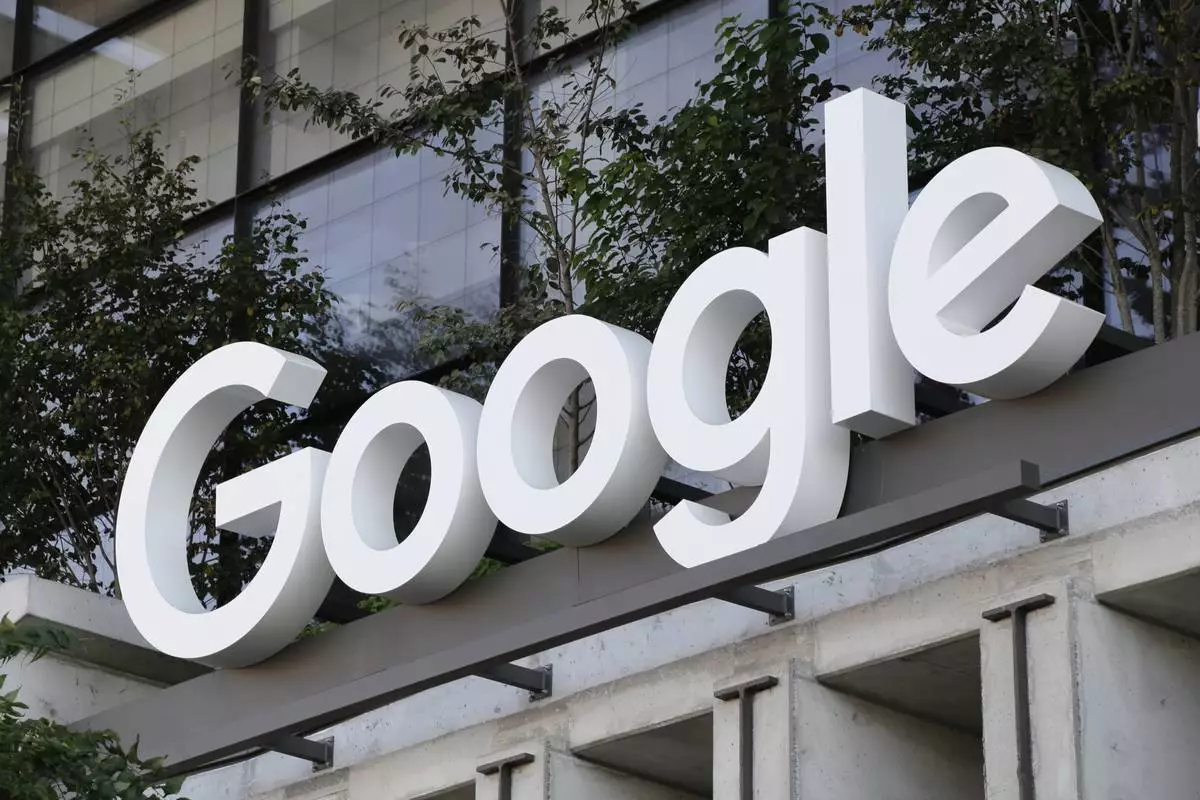
FILE - The Google sign is shown over an entrance to the company's building in New York on Sept. 6, 2023. (AP Photo/Peter Morgan, File)
JERUSALEM (AP) — Israeli soldiers recovered the body of a 53-year-old hostage in an underground tunnel in southern Gaza, the military said Wednesday, and the army was determining if another set of remains belongs to the man's son.
The discovery of Yosef AlZayadni's body comes as Israel and Hamas are considering a ceasefire deal that would free the remaining hostages in Gaza and could halt the fighting. Israel has declared that about a third of the remaining 100 hostages have died, but believes as many as half could be dead.
Yosef and his son Hamzah AlZayadni were thought to still be alive before Wednesday’s announcement, and news about their fate could ramp up pressure on Israel to move forward with a deal.
The military said it found evidence in the tunnel that raised “serious concerns” for the life of Hamzah AlZayadni, 23, suggesting he may have died in captivity. Lt. Col. Nadav Shoshani, an Israeli military spokesperson, said the circumstances behind Yosef AlZayadni's death were being investigated.
AlZayadni and three of his children were among 250 hostages taken captive after Hamas-led militants stormed into southern Israel, killing 1,200 people.
AlZayadni had a total of 19 children and had worked for 17 years at the dairy farm of a kibbutz that was among the communities attacked, said the Hostages Families Forum, a group representing the relatives of captives. AlZayadni’s teenage children, Bilal and Aisha, were released along with about 100 hostages in a weeklong ceasefire deal in November 2023.
The bodies of around three dozen hostages have been recovered in Gaza and eight hostages have been rescued by the army.
The Hostages Families Forum said the ceasefire deal being negotiated “comes far too late for Yosef - who was taken alive and should have returned the same way.”
“Every day in captivity poses an immediate mortal danger to the hostages,” the group said in a statement. The deaths of previous high-profile hostages have sparked large protests in Israel calling for a deal.
Yosef AlZayadni appeared on a list of 34 hostages shared by a Hamas official with The Associated Press earlier this week who the militant group said were slated for release. Israel said this was a list it had submitted to mediators last July, and that it has received nothing from Hamas.
U.S. Secretary of State Antony Blinken said Wednesday that a ceasefire and hostage deal between Israel and Hamas is “very close” and he hopes “we can get it over the line” before handing over U.S. diplomacy to President-elect Donald Trump’s administration later this month.
Israeli Prime Minister Benjamin Netanyahu expressed sorrow at the news of AlZayadni's death, and said in a statement he had “hoped and worked to bring back the four members of the family from Hamas captivity.” Israeli Defense Minister Israel Katz earlier said the bodies of both Yosef and Hamzah AlZayadni had been recovered, but the military said the identity of some remains were not yet determined.
The AlZayadni family are members of the Bedouin community, part of Israel’s Palestinian minority who have Israeli citizenship. The traditionally nomadic community is particularly impoverished in Israel and has suffered from neglect and marginalization. Palestinians make up some 20% of Israel’s 10 million population, and millions more live in Gaza and under Israeli military occupation in the West Bank.
Eight members of Israel’s Bedouin minority were abducted in the October 2023 attacks.
“We expected to bring them back alive,” said Talal Alkernawi, mayor of the city of Rahat, where the men were from. “Instead of returning them alive to their families, to raise their children, we receive them dead.”
Many of the families fear their loved ones' fate is at risk as long as the war in Gaza rages on. Israeli forces are pressing their air and ground war against Hamas, and Palestinian health officials said Israeli airstrikes killed at least nine people in the Gaza Strip on Wednesday, including three infants — among them a 1-week-old — and two women. Israel’s military says it only targets militants, accusing them of hiding among civilians.
The war has killed over 45,800 Palestinians, according to the territory's Health Ministry. It does not say how many were fighters, but says women and children make up over half the fatalities. The military says it has killed over 17,000 militants, without providing evidence.
Israel has destroyed vast areas of the impoverished territory and displaced some 90% of its population of 2.3 million, often multiple times.
The fighting has also spilled over into the broader Middle East, including a war between Israel and Hezbollah now contained by a fragile ceasefire, and direct conflict between Israel and Iran.
Iran-backed rebels in Yemen have targeted shipping in the Red Sea for more than a year and recently ramped up missile attacks on Israel, saying they seek to force an end to the war in Gaza. And on Wednesday, the U.S. military said it carried out a wave of strikes against underground arms facilities of the Houthi rebels.
Lidman reported from Tel Aviv, Israel.
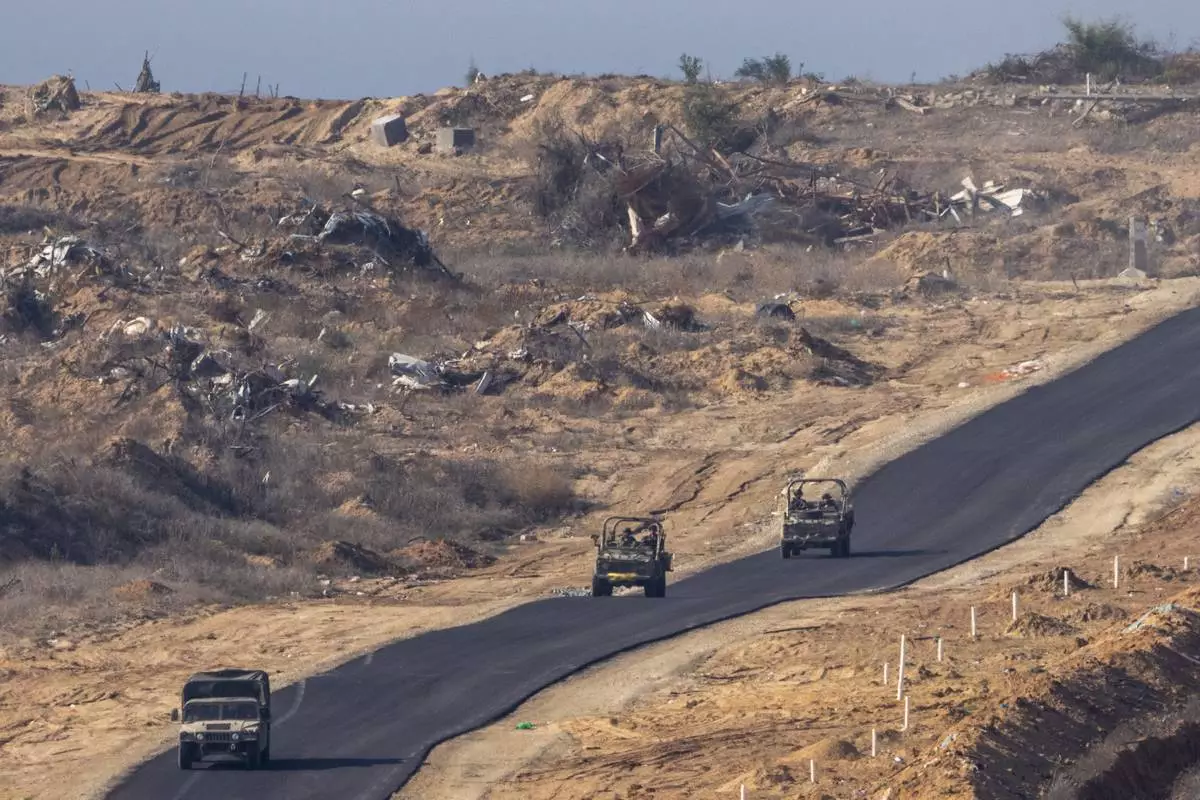
Israeli military vehicles move inside the Gaza Strip, as seen from southern Israel, Tuesday, Jan. 7, 2025. (AP Photo/Ariel Schalit)
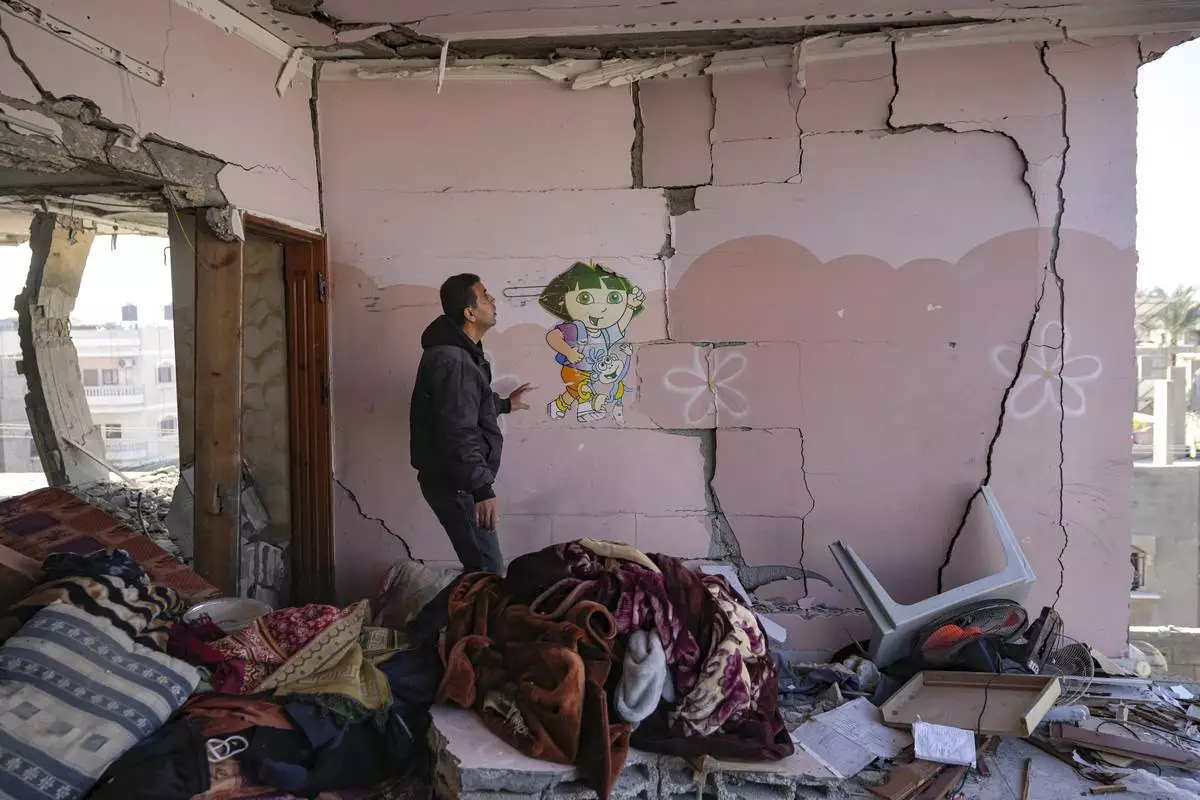
A Palestinian looks at a damaged residential building following an overnight Israeli strike in Deir al-Balah, Gaza Strip, Wednesday, Jan. 8, 2025. (AP Photo/Abdel Kareem Hana)
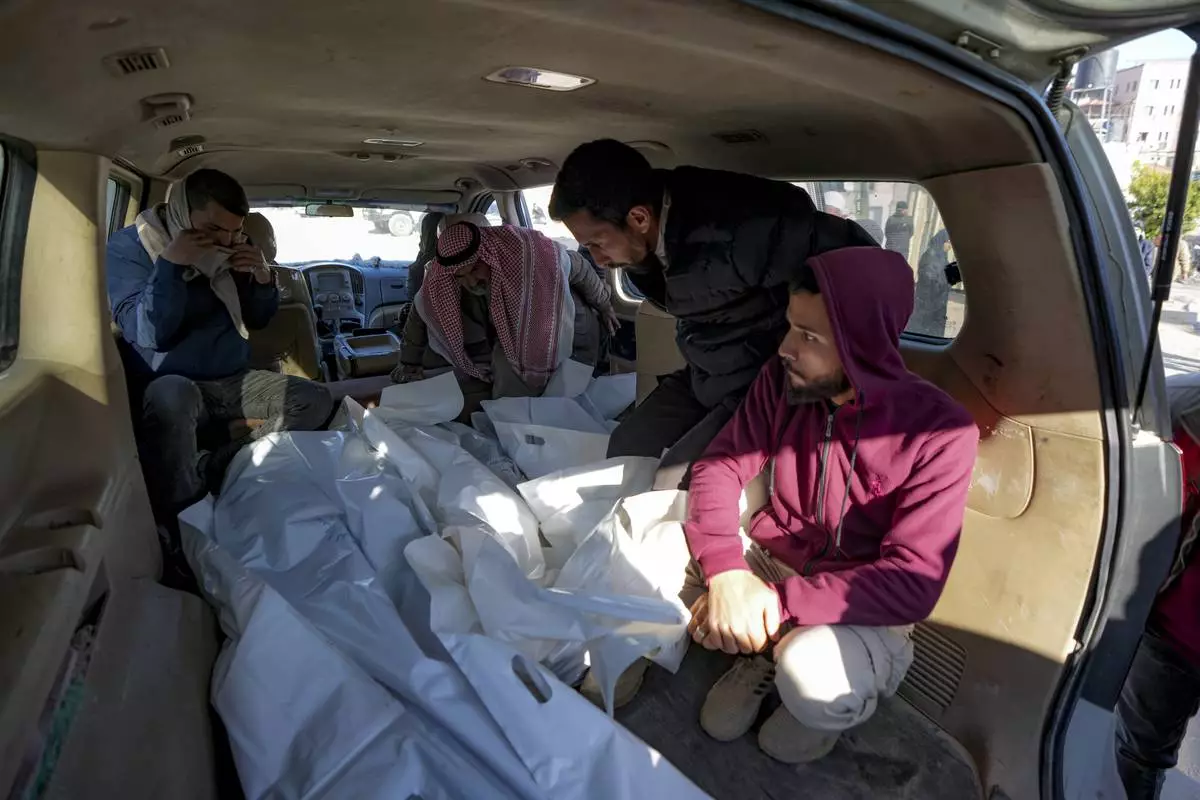
Mourners transport the bodies of their relatives killed in the Israeli bombardment of the Gaza Strip, during their funeral in Deir al-Balah, Wednesday, Jan. 8, 2025. (AP Photo/Abdel Kareem Hana)
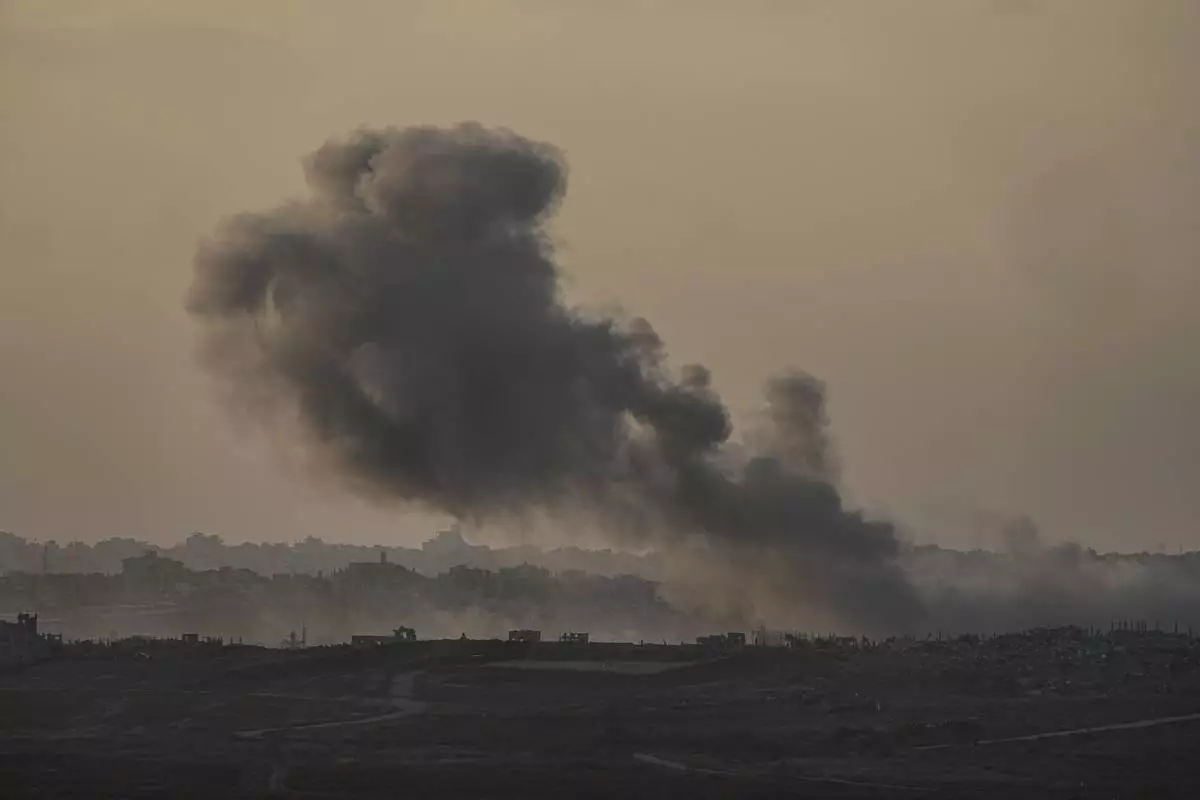
Smoke rises following an Israeli airstrike in the Gaza Strip, as seen from Sderot, southern Israel, Monday, Jan. 6, 2025. (AP Photo/Tsafrir Abayov)

Gazelles graze on a field in southern Israel on the border with Gaza Strip, Tuesday, Jan. 7, 2025. (AP Photo/Ariel Schalit)
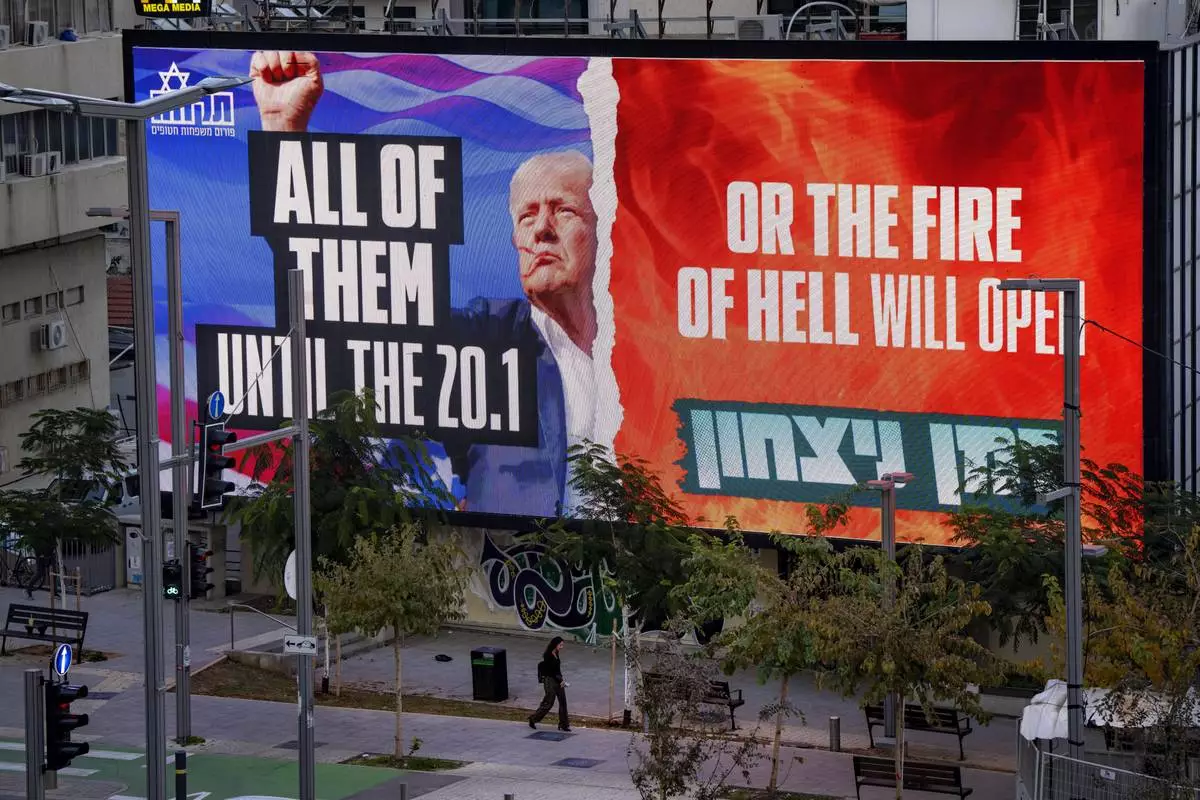
An electronic billboard beams an image of President-elect Donald Trump and references his threat to unleash hell if hostages held in Gaza are not freed until his inauguration later this month. in Tel Aviv, Israel, on Wednesday, Jan. 8, 2025. (AP Photo/Oded Balilty)
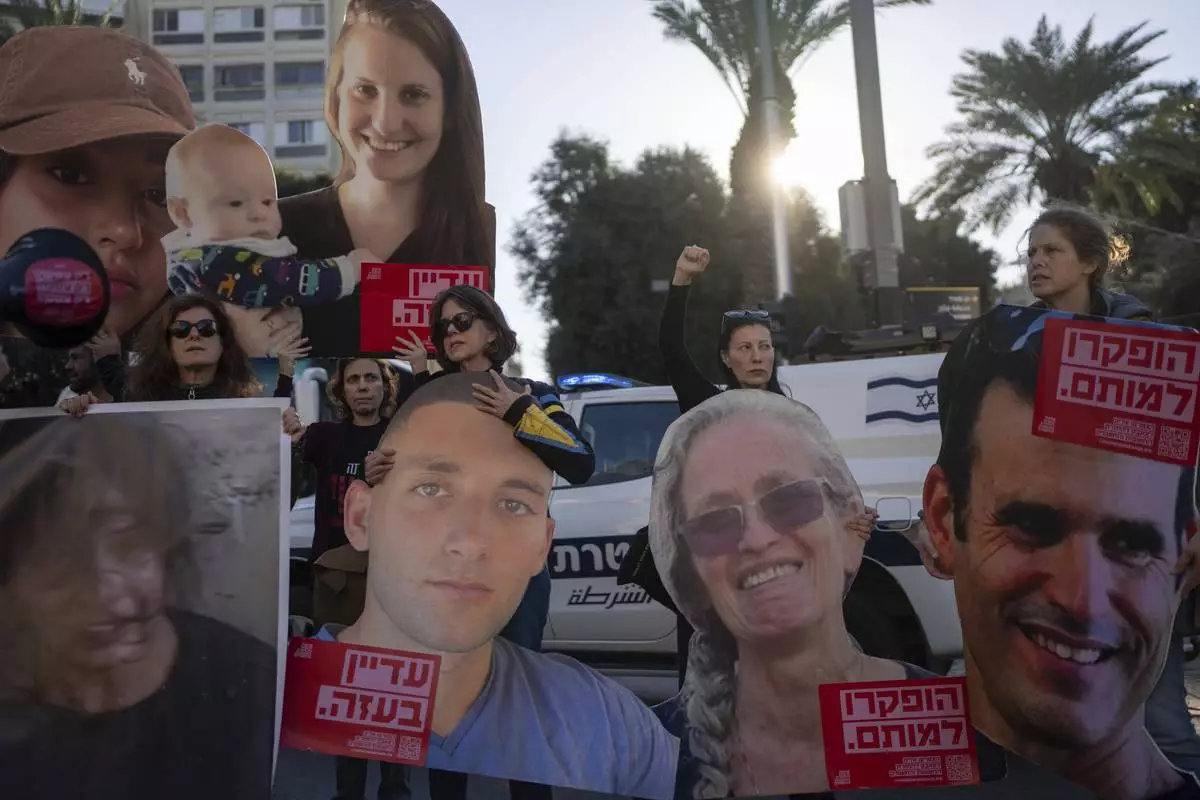
Relatives and supporters of Israeli hostages held by Hamas in Gaza hold photos of their loved ones during a protest calling for their return, in Tel Aviv, Israel, Wednesday, Jan. 8, 2025. (AP Photo/Ohad Zwigenberg)
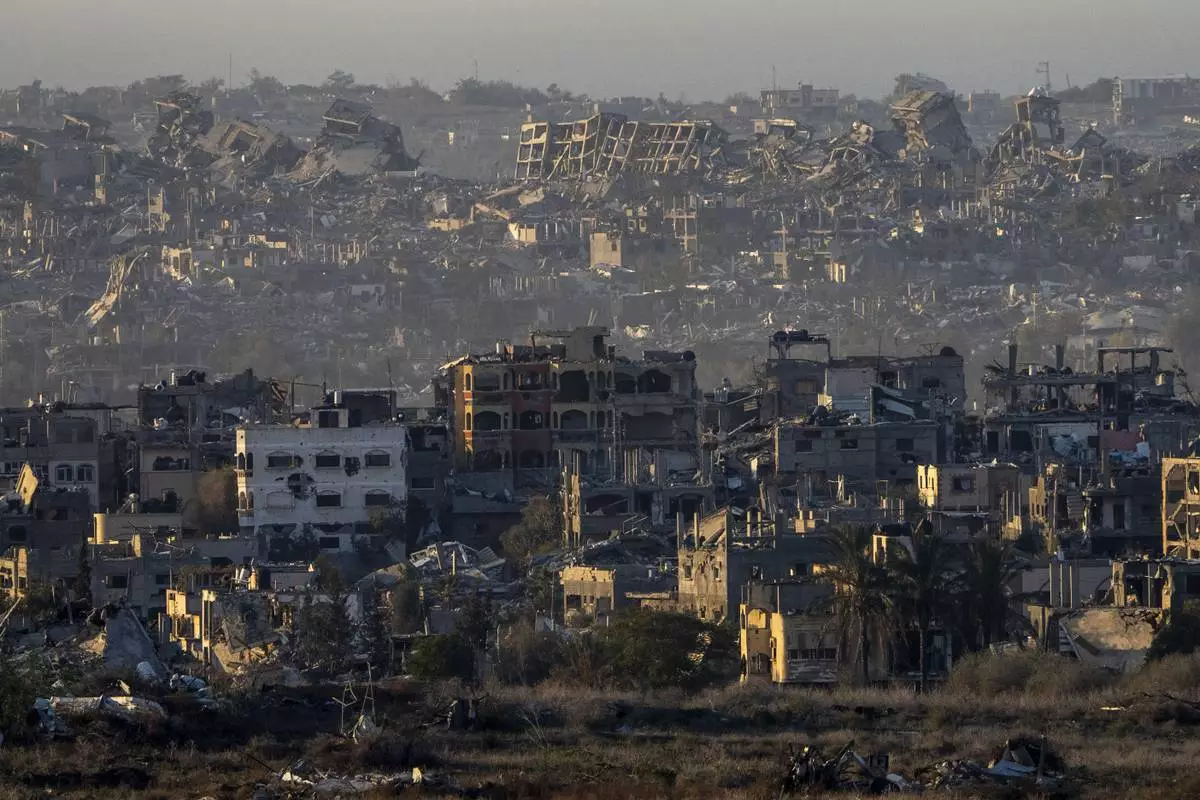
Destroyed buildings stand inside the Gaza Strip, as seen from southern Israel, Tuesday, Jan. 7, 2025. (AP Photo/Ariel Schalit)





